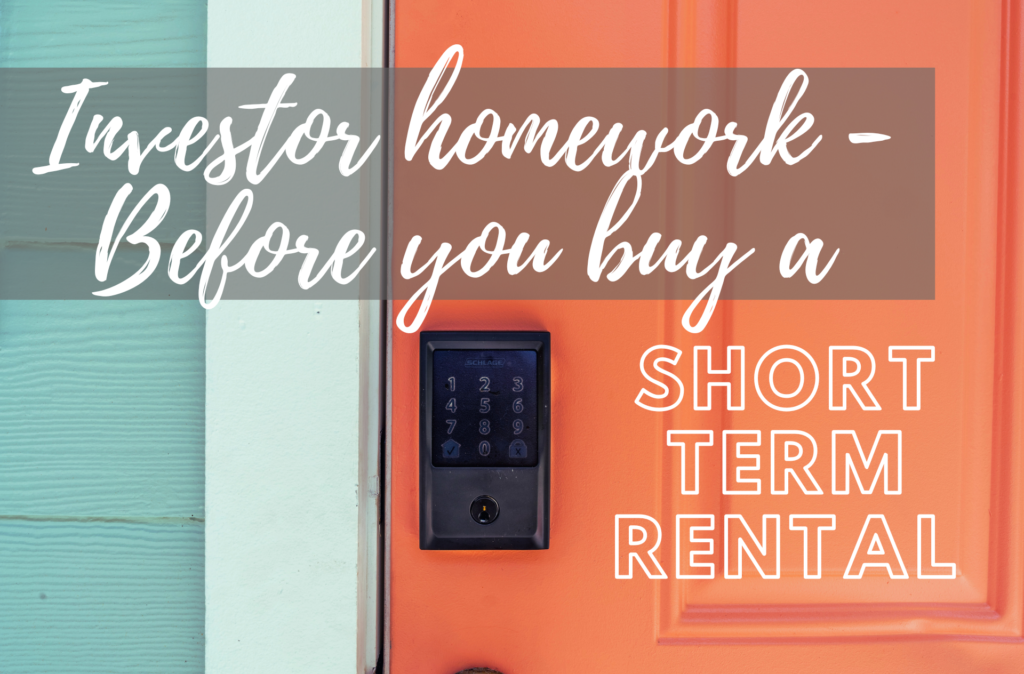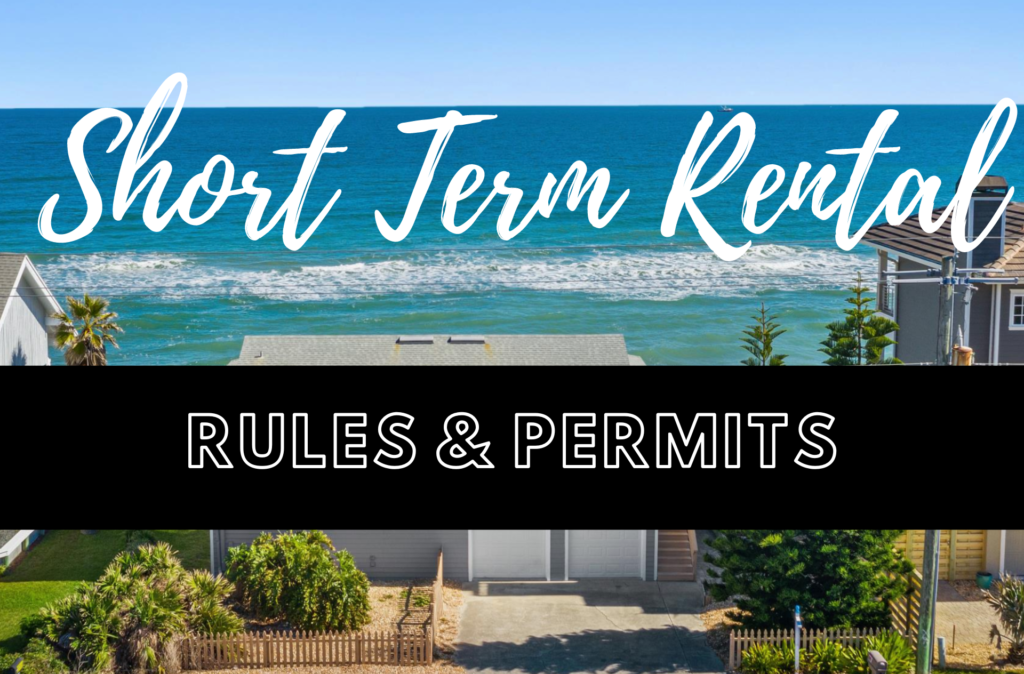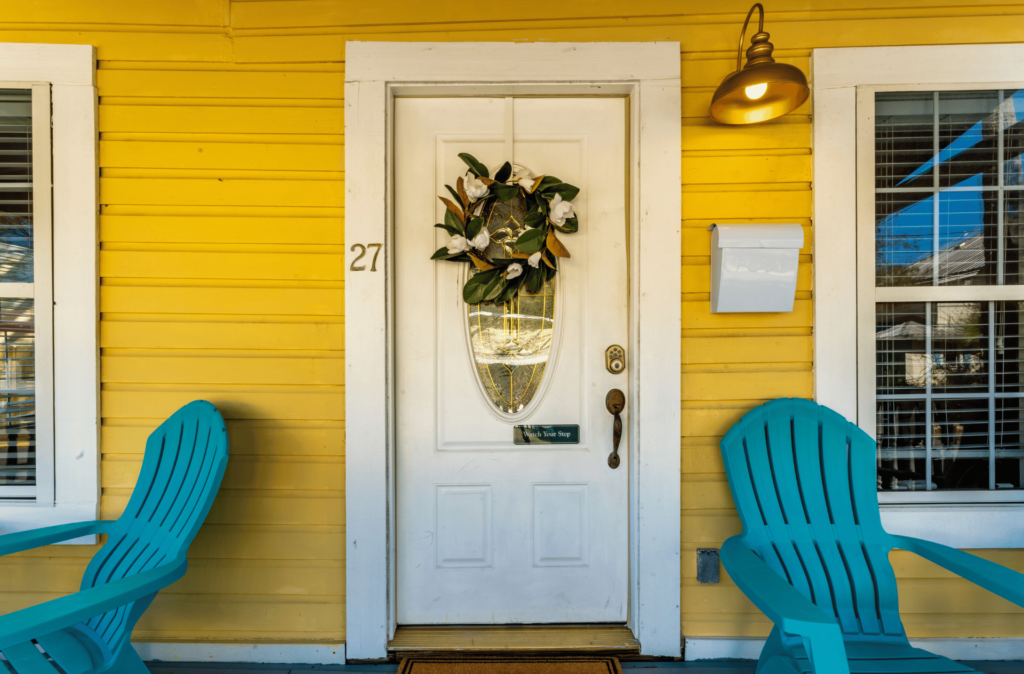PRE-PURCHASE HOMEWORK
So you want to buy a short term rental. It is fun to go out and look at property but first there is some homework to do that will save both you and I time, and a purchase you may end up regretting later. Let’s look at the areas you should be aware of:
- Does it fit the STR criteria? Not every home should be a STR and even it if previously was, it is still your job to see if the potential is there. Look at the property listing online and answer these questions:
- Number of off street parking spots
- Location – is it somewhere visitors will want to stay?
- Flood zone
- Curb appeal – good, bad, potential?
- Any amenities or possible room for some
- Property zoning – is STR allowed and what are the restrictions?
- Does it need furniture, updates, or décor changes, and if so what would that cost?
- What can you afford? Instead of starting with a purchase price, let’s figure out how much cash you’ll need to get up and running. You’ll need to put aside some cash for your initial Start-up costs AND a fully funded Reserve Account first. These are the furnishings, supplies, kitchenware, decor, photography, minor cosmetic updates, TVs, outdoor furniture, locks etc. Remember, the properties we see may be furnished or unfurnished, or you may hate the furniture and want to replace everything. If we assume a full set of furniture will be required, you may need to set aside upwards of $15-$25 per sq ft for that. It is a good idea to start a spreadsheet and price out everything you may need. Based on that, the remaining money will be your downpayment on the property which will generally be 20-30% of the purchase price. Take a property you like within the list price range you’re thinking now that you know your start up costs. Use that property to see rental comps in the same area, average occupancy rates, an accurate nightly rate based on market data, seasonality then forecast out what it would cost to run and if it would cover all expenses. Start with a property you like online and create a spreadsheet from there. Get a handle on these numbers as you will want to plug in every potential property into this model.
- Estimating all ongoing operating expenses to see if it would break even, cash flow or lose money. Remember with a short-term rental all expenses are yours to pay, i.e: pest control, lawn care, power, water, trash, internet and cable.
- Know your location’s seasonality. Identify the slow months. You may need a few months costs covered in your reserve account to cover these lulls in bookings, whether seasonal, or weather event related.
- Putting cash aside for your fully funded reserve account. Things can go wrong and if the AC breaks it can make or break your business. Ensure you have enough funds to get you through emergencies and slow months. Estimate this cash aside from what you plan to put down and then look at your budget for the purchase again.
Now you are ready to:
- Talk to a lender that understands investor loans about what you qualify for based on your personal financial situation
- Talk to me or your realtor about which properties make sense to see, based on your criteria. Let’s pull together a short list of available homes that make sense for your intentions and within your budget.
- You will then be ready to view property and get ready to make an offer!



